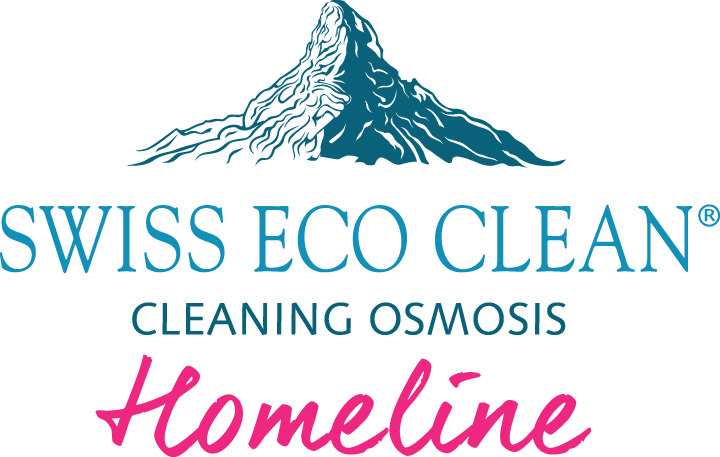April 02, 2018

Do you remember getting scolded as a child for not telling the truth?
A big wagging finger appearing close to your face, moving rapidly, left-right, left-right, as the grown up in front of you declared with a stern look; we should always tell the truth!
As children, we quickly learn that not telling the truth can have some unfortunate consequences. Doesn't matter how colourful or entertaining our story might be.
Still, we all slip up. Even if we’re incredibly honest people, there are little white lies we don’t even notice ourselves saying every day. For example, how many times has someone asked you how you are doing, and you respond with “good!” when you’re not good at all?
We don’t have time to or feel like explaining everything to everyone all the time. And that’s fine.
But I bet if someone asked you, if it’s perfectly okay not to tell the truth, you would probably protest, and so would I.
Huge problems start when…
…people in essential positions don’t follow the rules. When they abuse the good-will of people like you and me. We trust what they say, we believe they want and work for what's best for us and our future generations.
I had tremendous respect for authorities. That was until I started to „dig“ a bit deeper and discovered that there’s so much more going on behind the scenes. And a lot is not in our interest; it’s more in favour of lobbyists and big corporations.
I wonder, weren’t they told as children that we should tell one another the truth, especially when it's about something important?
Let’s take an example, animal testing; there are many scientists, doctors and experts that explain how useless or rather dangerous they are.
This explanation is what Doctors Against Animal Experiment Germany have to say:
“The difference between animals and men is that big, that results of animal experiments can not reliably be transferred to human beings… Also, animal experiments are not able to protect the consumer from damages caused by chemicals and drugs.
Today a lot of so-called in vitro methods are available, test methods which are carried out in a test-tube and thus do not use live animals. These innovative methods of research deliver - in contrast to the animal experiment - reliable, easily reproducible results, and besides these tests are more sensitive, cheaper and faster than tests on the living animal.”
Watch this short - 6 minutes - video to get a bigger picture (animated, not graphic)
Household chemicals
There are chemicals in almost everything that we come into contact with in our everyday life. Everything from cleaning products, cosmetics, plastic, cooking pots and pans, paint, electronics, furniture, building-material, toys, nursing baby bottles etc.
Millions of animals are used in cruel and outdated chemical-toxicity tests every year.
The animals are injected, force-fed, and smeared with chemicals… then killed if they hang on and survive the experiment. And on top of it, these tests do not give us the answers that we need.
Each ingredient in cleaning and washing agents were at some point tested on animals.
11 March 2013, animal testing on cosmetic ingredients were banned. Unfortunately, animal experiments for cleaning agents, paints and all other (household) chemicals were not prohibited.
If a new ingredient that enters the market falls under the Chemicals Act, it must always be tested on animals. The EU REACH Regulation (which handles chemicals since 2007), requires companies to follow specific standards for human health and the environment.
But animal experiments offers no protection against toxic substances - on the contrary. Misleading animal test results have repeatedly led to the danger of substances not being recognised or being recognised too late.
There are already enough alternatives, for example, in vitro tests based on human cells, and like in the statement from Doctors Against Animal Experiment above, delivers reliable, easily reproducible results, and besides these tests are more sensitive, cheaper and faster than tests on the living animal.
Why is this still going on?
Doctors Against Animal Experiment explains:
Check these stats out!
The US Food and Drug Administration (FDA) has calculated that 92% of all animal test results are not human-transmissible. And from the remaining 8%, about half of all developed products have to be taken off the market or their package inserts have to be supplemented by serious side effects. This means: Only 4% of the animal test results are transferable to humans. And that 4 %, you only know after testing on humans.
What you can do
As mentioned before, the ingredients have at one point been tested on animals, and that can't, unfortunately, be undone.
When it comes to cosmetics and cleaning products, it's a bit easier than with plastic, cooking pots and pans, paint, electronics, furniture, building-material, toys, nursing baby bottles etc.
Animal testing on cosmetics is forbidden in EU since 2013.
Look for products with the registration or certification The Leaping Bunny or The Vegan Society. Or contact the company, not all companies that don’t have certifications, do animal experiments or commission ones.
You'll start to think about how your actions are making sense. It’s fun and motivating.
Together we can solve so many problems through the way we choose to consume. Bonus, point, you’ll also feel a tingling sensation of being a superhero!
If you would like to help some more - takes two minutes…
Petition:
For a ban on animal testing for household products and their ingredients
https://www.peta. de/keine-tierversuche-fuer-haushaltsprodukte#.Wqj9KGrOWUl
Petition:
https://www.peta.de/tierversuche-eu- beenden#.WqWHj2rOWUk
For Swiss Citizens - Initiative:
Tierversuchsverbots- Initiative
Sources & facts:
Here’s another short video (animated, not graphic), this time from The Physicians Committee for Responsible Medicine.
Doctors Against Animal Experiment Germany
ECEAE - The European Coalition to End Animal Experiments
AG STG - Aktionsgemeinschaft Schweizer Tierversuchsgegner
LSCV the Swiss League against vivisection
Januar 27, 2026
A seat, a smile, a moment. Why small acts of kindness, conscious consumption, and caring for animals and people strengthen our sense of happiness.
November 01, 2025
November is dedicated to veganism. Living vegan is not about perfection, but about the conscious choice to reduce harm as far as possible.
Oktober 29, 2025
Do a calm, cosy October reset in under 90 minutes: declutter sentimental items, clean as you go, and display one memory you’ll actually see: mini checklist included.
